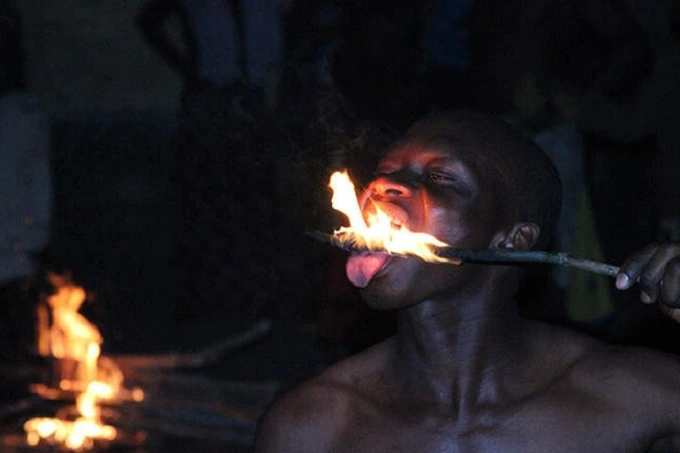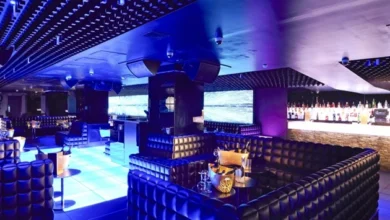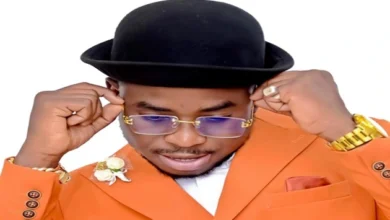African spirituality and what do Africans believe?

Even though today’s Africa is almost equally divided between Christians and Muslims, neither one nor the other has ever lost their ancient traditions. The inhabitants of Tropical Africa have long been not particularly devoted to one religious system and are not accustomed to the harsh totalitarian dogmas of religion so beloved by Europeans or residents of the Middle East.
Even the medieval Arab chronicles bitterly stated that even the rulers of the Islamic states of Africa, having formally adopted the new faith, continued to participate in traditional ceremonies and did not shy away from eating during the holy month of Ramadan. They neglected the need for five daily prayers and did not understand why limit themselves to four wives when you can have one hundred and forty-four.
In the 14th century, the Muslim Ibn Battuta wrote indignantly about how the daughters of African Muslim rulers danced in the streets of the city, not only without covering their faces but even completely naked. The peasants, in the mass, continued to adhere to the religion of their ancestors, and even if they went to the mosque, they were in no hurry to give up their former beliefs.
Even today, the veneration of ancestors, nature spirits (stones, trees and groves, rivers, and lakes), and sacred totemic animals goes well with visiting a church or a mosque. Many Africans believe that Christ fulfills requests free of charge, but not always and not immediately, while the local spirit of Zangbeto is more punctual and efficient, but takes too much in return.
In Ghana, many traditional priests use in their ceremonies not only crushed monkey skulls, amulets, and incense but also the Holy Scriptures. For a 100% effect, just in case, the Koran can also be attached to them.
Faith and religion are very different things in modern society. So, someone may not go to church at all and not really know a single Orthodox holiday, except for Easter, but at the same time believe in God, as well as in a black cat, horoscopes, and esoteric living knowledge.
In addition, the scope of supernatural forces is constantly narrowing: most of us no longer consider lightning to be a divine hand, and only the most desperate enthusiasts believe in conspiracies, divination, and dream books.
In traditional African society, things are different. The consciousness of an African does not at all imply a division of the world into the natural and the supernatural. For him, these concepts simply do not exist: the world of gods, spirits, people, and animals is one.
Yes, some creatures in it are invisible to the eye, but, as the people of Uganda said, “the bug is also invisible, but it never occurs to anyone to talk about his supernaturalness.” Moreover, he added, after a long reflection, spirits can appear to a person in any guise if they want, but bedbugs never do this.
How widespread is witchcraft in Africa?
Almost any trouble that happens to a person, family, city, or even state in Africa is still attributed to witchcraft. The loss of livestock, the lack of rain, unexpected death from illness, the death of a newborn child, or the harvest of grain eaten by birds due to an oversight of a sleeping watchman – all this has only one reason: one of the ill-wishers used black magic against the inhabitants.
This simple explanation, oddly enough, really helps not only to understand the world but also to cope with difficulties. If a person falls ill, it only means that at night, a sorcerer flew into his house on the wing of a bat and inserted a malicious fetish into his body. Death will be inevitable unless the healer (the same sorcerer, only very kind) can not get it. The healer, however, usually succeeds.
Such treatment has a strong psychotherapeutic effect on the patient: feeling bewitched, people often die simply from fear, but after the procedure of “curing” from witchcraft, the patient will certainly believe in recovery. Well, if the disease still finishes him, his relatives will know: the witchcraft spell was too strong, and it was necessary to pay the healer more money.
Even the 21st century cannot cope with witchcraft. Witchcraft is officially prohibited by the laws of a number of countries; in Seychelles, gris-gris sorcerers are outlawed and are wanted as real criminals.
The governments of African states create special “witch camps”, in which they bring from all over the country sorcerers and sorcerers expelled from their homes by their relatives. Sorcerers are often found among crippled, lame, deaf people, they will almost inevitably be considered albinos, often the fear of witchcraft extends to twin children, who in many parts of Africa are considered harbingers of misfortune for the community.
There are cases when, under the influence of anti-witchcraft hysteria, under the pressure of which an African constantly lives, a person himself begins to feel like a sorcerer or witch. But after a certain rite is performed on him, the spell is dispelled, and yesterday’s witch will consider herself cured all her life.




